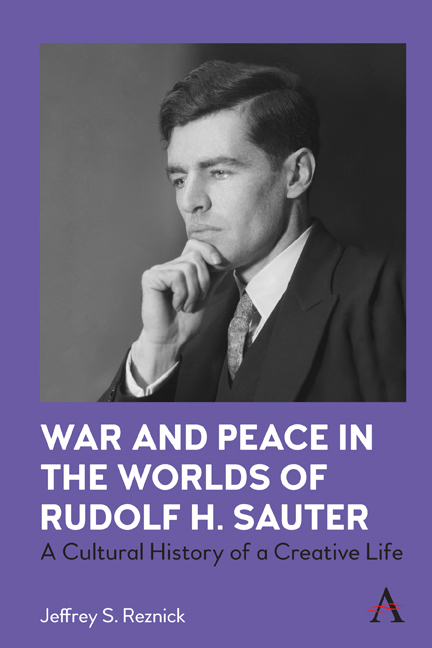Book contents
- Frontmatter
- Contents
- List of tables and figures
- Acknowledgments
- Introduction: Reconstructing a Creative Life
- Chapter 1 Beginnings, 1890–1914
- Chapter 2 Internment, 1914–19
- Chapter 3 Recovery, 1919– 24
- Chapter 4 Artistry I, 1924–39
- Chapter 5 Artistry II, 1939–50
- Chapter 6 Reflections, 1950–77
- Conclusion: Legacy
- Epilogue: In His Own Words
- Selected Bibliography
- Index
Chapter 6 - Reflections, 1950–77
Published online by Cambridge University Press: 13 May 2022
- Frontmatter
- Contents
- List of tables and figures
- Acknowledgments
- Introduction: Reconstructing a Creative Life
- Chapter 1 Beginnings, 1890–1914
- Chapter 2 Internment, 1914–19
- Chapter 3 Recovery, 1919– 24
- Chapter 4 Artistry I, 1924–39
- Chapter 5 Artistry II, 1939–50
- Chapter 6 Reflections, 1950–77
- Conclusion: Legacy
- Epilogue: In His Own Words
- Selected Bibliography
- Index
Summary
In August 1950, Rudolf authored a posthumous appreciation of the artist George Graham and his creation paintings, a collection of deeply spiritual images which reflected Graham’s search for meaning and truth while provoking viewers to embark on a similar journey. “George Graham, as I knew him,” Rudolf began:
was one of the finest men it has ever been my privilege to meet, one of the sanest and most practical and perhaps the greatest visionary. That these two usually opposing trends were so harmoniously blended in him may have had to do with the character of the work here exhibited. For no one who had any contact with the mind behind these paintings, can fail to have been moved by the transparent sincerity, the deep artistic integrity and the philosophic outlook, in which they were conceived and which, one might almost say, compelled their execution.
He continued:
But his was not the cold philosophy of abstractionism. On the contrary, there was a warm humanity about George Graham which infused everything he did with a sort of urgency, very refreshing to the mind and a broadness of outlook which enabled him not only to overcome physical disability in himself, but to turn it to good and profitable account. He had those qualities of greatness, which cause everything in their neighbourhood to grow and expand, as distinct from the qualities which make for success, under whose branching shade art all too easily dwindles away, So, in his presence, you became a greater man; and from that rugged, honest personality you came away feeling that life was just that little but more worth while and, above all, art was something which really mattered.
While this tribute was a reflection on the characteristics of a contemporary who thought deeply about existential concerns, it anticipated these very characteristics becoming hallmarks of Rudolf’s own later life. During this period, he and Viola lived in Stroud, Gloucestershire. They moved there from Coddington at the encouragement of friends to appreciate the growing local arts scene, particularly the Stroud Festival for Religious Drama and the Arts. For £9,500 they purchased Fort William, a mid-nineteenth-century property located high atop the town at the end of its Rodborough Common.
- Type
- Chapter
- Information
- War and Peace in the Worlds of Rudolf H. SauterA Cultural History of a Creative Life, pp. 141 - 180Publisher: Anthem PressPrint publication year: 2022



